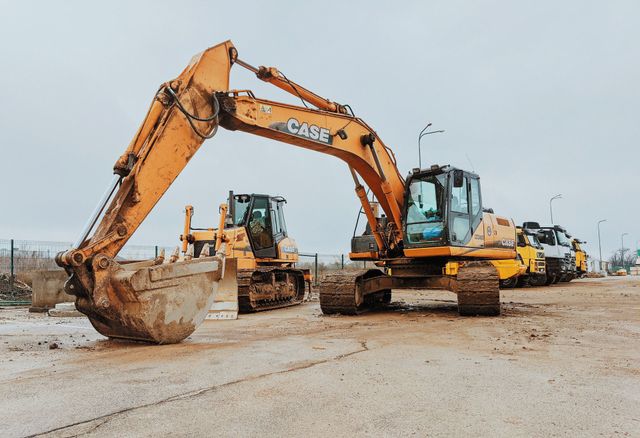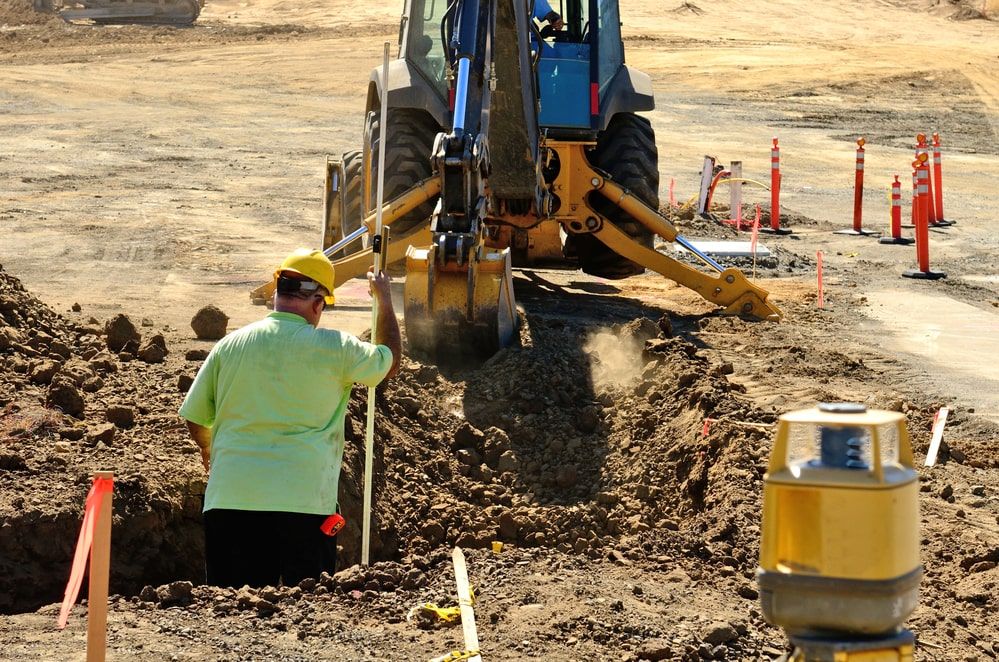Best Dump Truck Companies in Ohio - Top-Rated Dump Truck Providers
Best Dump Truck Companies in Ohio - Top-Rated Dump Truck Providers
Blog Article
Comprehensive Excavation Techniques: Grasping the Principles for Success
In the world of building and civil design, the importance of efficient excavation methods can not be overemphasized. The mindful preparation, exact execution, and meticulous focus to detail needed in excavation tasks require a thorough technique that incorporates various fundamental facets. From first soil analysis to the application of precaution and routine development monitoring, understanding these core aspects is necessary for accomplishing success in any type of excavation undertaking. Nevertheless, real mastery lies not simply in recognizing these principles however in seamlessly integrating them to browse the complexities of excavation tasks with finesse.
Recognizing Excavation Task Preparation

Successful excavation jobs are improved the foundation of meticulous and complete planning. The preliminary stage of any type of excavation project is the preparation phase, where crucial decisions are made that can substantially influence the result of the task. Throughout this phase, it is necessary to gather all appropriate information regarding the website, including topographical surveys, soil make-up, and any kind of potential risks that might exist. Comprehending the task budget plan, range, and timeline restrictions is crucial for creating a detailed excavation strategy that makes certain the project's success.
One key aspect of excavation task preparation is the development of a detailed timeline that outlines the series of tasks, milestones, and due dates. This timeline offers as a roadmap for the task team, allowing them to track development and make essential modifications to guarantee the project remains on schedule. In addition, a well-defined budget that accounts for all expenditures, including devices rental, labor costs, and products, is vital for staying clear of expense overruns and delays. By meticulously thinking about all these elements throughout the drawing board, excavation jobs can be carried out successfully and properly, leading to effective results.
Dirt Analysis and Site Analysis
Conducting detailed dirt analysis and website examination is a crucial action in the preparation stage of any type of excavation project. Soil analysis involves determining the composition, structure, and residential properties of the dirt at the excavation website. This information is important for understanding the dirt's bearing capacity, wetness material, and possibility for disintegration, which are crucial elements in identifying the excavation methods and devices required for the task.
Website analysis exceeds soil evaluation and includes a wider evaluation of the total site conditions. This evaluation consists of determining any kind of prospective risks, such as below ground utilities, ecological problems, or unsteady terrain, that could impact the excavation procedure. By extensively evaluating the site, task managers can establish effective excavation approaches that prioritize security, efficiency, and ecological defense.
Utilizing innovative innovations like ground-penetrating radar, dirt tasting, and drone surveys can boost the precision and performance of dirt analysis and site examination. Investing time and resources in these preliminary actions can inevitably conserve time and protect against pricey hold-ups or complications throughout the excavation process.
Equipment Selection and Usage
Reliable excavation tasks rely greatly on calculated equipment option and application to make sure optimum efficiency and performance. Picking the ideal equipment for the job is important in taking full advantage of efficiency and lessening downtime. Variables such as the sort of dirt, deepness of excavation, and task scope play a considerable duty in establishing the most ideal tools for the task handy.

In enhancement to choosing the ideal devices, proper application is vital to job success. Operators should be educated to handle the equipment securely and effectively - excavating ohio. Routine upkeep checks and timely fixings aid avoid malfunctions and ensure regular performance throughout the job
Precaution and Laws Compliance
In the world of excavation projects, focusing on safety and security steps and conformity with regulations is critical to guaranteeing a legally sound and protected operational environment. Safety procedures encompass a series of techniques, including conducting complete website analyses, implementing proper signage and barriers, and offering adequate security training for all employees associated with the excavation procedure. Adherence to laws, such as OSHA needs in the USA, ensures that the excavation project fulfills the required requirements to safeguard workers, spectators, and the surrounding setting.

Monitoring Progression and Adjusting Approaches
Just how can predict managers effectively track the innovation of excavation tasks and adjust their approaches accordingly to enhance results? Tracking progression is essential for ensuring that excavation projects remain on track and meet deadlines. Task managers can make use of different tools and techniques to track progress, such as everyday progress records, normal website evaluations, and advanced tracking technologies like drones and general practitioners tracking systems. By continuously monitoring the project's innovation, managers can recognize any possible delays or issues at an early stage and take positive measures to resolve them.

Conclusion
In final thought, understanding the basics of extensive excavation approaches is necessary for the success of any project. By comprehending job preparation, assessing soil and website problems, picking ideal equipment, abiding by security policies, and checking progress, project supervisors can make sure a effective and smooth excavation process. Executing these techniques will lead to successful end results and reduce prospective dangers or setbacks during the excavation project.
The preliminary stage of any excavation project is the preparation stage, where important decisions are made that can considerably influence the outcome of the job. Recognizing the job budget plan, timeline, and range constraints is vital for producing a comprehensive excavation strategy that ensures the project's success.
Just how can predict managers efficiently track the improvement of excavation jobs and adapt their techniques appropriately to enhance outcomes? By very closely keeping an eye on development and being prepared to adapt techniques, project managers can boost the overall success of excavation jobs.
By comprehending job preparation, assessing her explanation dirt and website problems, picking suitable equipment, abiding with security laws, and keeping an eye on progress, task supervisors can guarantee a smooth and description efficient excavation procedure.
Report this page